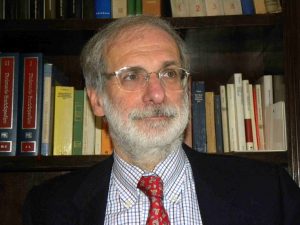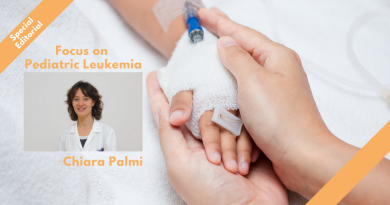Mentoring the next generation of Physician Scientists
The word “mentor” originates from Homer’s epic, the Odyssey. It was the name of the friend Odysseus assigned as a trusted adviser to his son Telemachus in his absence. In the present day, this word can be used as a verb – “to advise or train”, or as a noun – “an experienced and trusted adviser”. Mentoring in the medical education, and more specifically in the context of the Virgilio Program, involves investing time in guiding the young undergraduate medical students, encouraging and supporting their journey as they explore the biomedical research path.
As a senior faculty, I believe that mentors have a huge responsibility in this area, particularly in the context of the declining number of physician-scientists, continuous and varied challenges represented by the outgrowth of Science in the modern world, often accompanied by the surge of dangerous albeit popular anti-science reactions. The benefits of mentoring are not confined only to the recipient, but encompasses all stakeholders: the mentees receive guidance to develop career and personal development goals, extend their professional network and gain an insight into real world professional experiences; the mentors enhance training, coaching and leadership skills, build and extend a network of new talents and gain personal gratification for positively impacting a mentee’s future; and the community gets a chance to grow into a professional organization, gain competitive edge and address potential problems that students may face during and after graduation. Furthermore, mentoring may become a pleasurable experience to guide mentees and support their learning process. Besides the inherent pleasure of enabling a student, as a mentor sometimes I find that reflective discussion with my mentee students gives me new perspectives and fresh insights into my own thinking as well.

Mentoring is expected to support mentees in several ways. Just to list a few, to improve their social and communication skills, to boost self-esteem, to provide career exploration and counselling at the start, when the need for this support is most important, to provide information and resources – including people/network as well as to support academic activities.
Having said the above, I also wish to clarify some aspects and expectations related to mentoring. First and foremost, mentoring is neither the day-by-day management of the mentee’s decision-making or career, nor a substitute for training. Mentors do not do work on behalf of their mentees, nor do they take responsibility for what the mentee does. Nor is it a form of therapy. Mentoring is not a synonym for career advice, although the discussion of career dilemmas and choices may be a key ingredient. Mentoring is not a parental relationship in which one party does all the giving and the other all the taking. It is not about instructing the mentee what to do with his/her life.

A mentor is someone who takes a special interest in helping another person develop into a successful professional. In the realm of biomedical science, a good mentor seeks to help a student optimize his/her educational experience, to assist the student's socialization into a disciplinary culture, and to guide the student towards a suitable career path. These obligations can extend well beyond formal education and continue into or throughout the student's career. Good mentors are able to share life experiences and wisdom, as well as technical expertise. They are good listeners, good observers, and good problem-solvers.
They make an effort to know, accept, and respect the goals and interests of a student. In the end, they establish an environment in which the student's accomplishment is not limited only by the extent of his or her talent. I believe that the best achievement of a good mentor’s duty is reached when the mentee surpasses the mentor.
Blogpost Author

Prof. Michele Samaja
Full Professor of Biochemistry, School of Medicine
University of Milan



